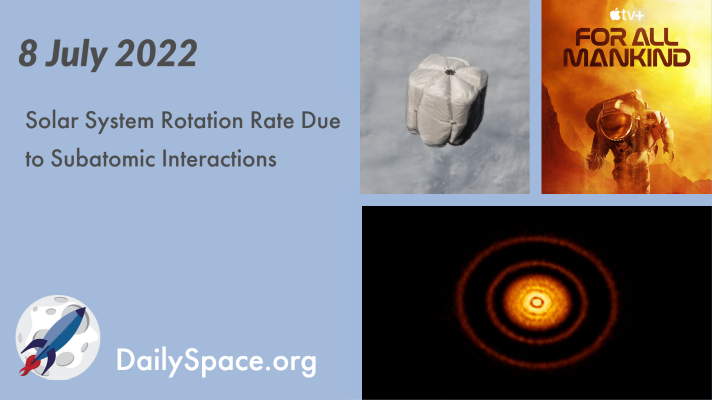
Jul 11, 2022 | Crewed Space, Daily Space, Earth, Exoplanets, JWST, Moon, Our Solar System, Review, Rockets, SpaceX, Starlink
Using a first-principles approach, researchers have discovered that the differences in the rotational rate of the solar system are due to the inward and outward flow of cations and electrons. Plus, JWST’s first list of observations, a Starlink launch, dinosaurs, raining sand, and a review of episode two of this season’s For All Mankind.
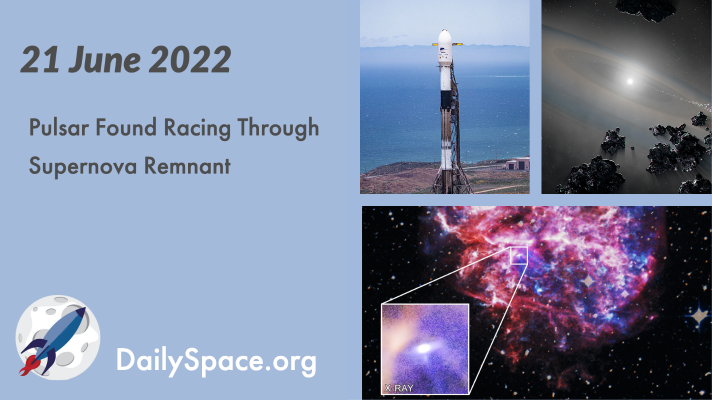
Jun 22, 2022 | AAS, Daily Space, Galaxies, Neutron Stars / Pulsars, Rockets, Spacecraft, SpaceX, Star Forming Region, Starlink, Stars, Supernovae Remnants, White Dwarfs
Researchers using the Chandra X-ray Observatory have found that a known pulsar is moving through a supernova remnant at over one million miles per hour. Plus, the life and death of stars, new pictures of the Large Magellanic Cloud, and all of the SpaceX rocket launches.
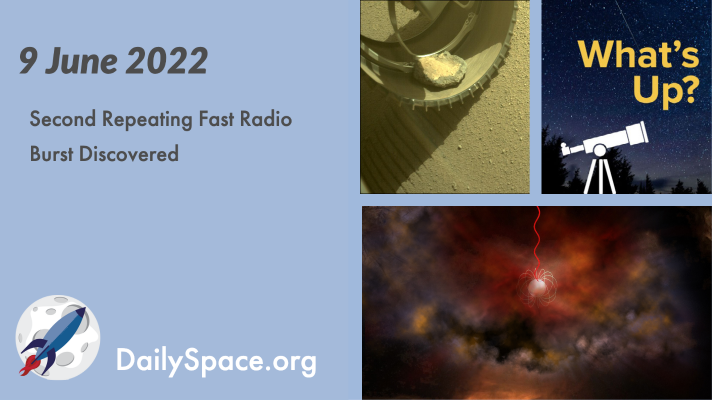
Jun 10, 2022 | Daily Space, Fast Radio Bursts, JWST, Mars, Neutron Stars / Pulsars, Perseverance, Rockets, Sky Watching, Space Policy, Spacecraft, SpaceX, Starlink
A second repeating fast radio burst was detected in 2019 by China’s FAST observatory and confirmed in 2020 by the Very Large Array. This latest discovery raises the possibility that there are two different types of FRBs. Plus, a SpaceX commercial launch, mission updates, neutron stars, and this week’s What’s Up.
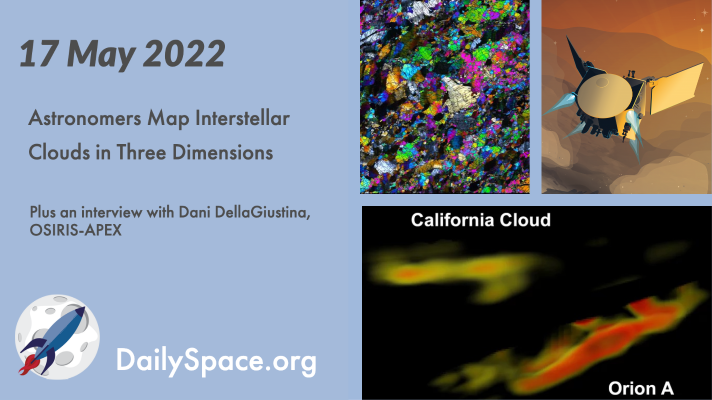
May 18, 2022 | Astrobiology, Bennu Mapper, Daily Space, Earth, Galaxies, Guest Interview, Nebulae, Rockets, Space China, SpaceX, Starlink
A team of scientists combined stellar locations from the Gaia mission with dust and cloud maps from the WISE and 2MASS catalogs to create amazing three-dimensional images of the California Cloud and Orion A Cloud. Plus, rocket launches, the origin of carbon, and an interview with Dani DellaGiustina, principal investigator for the OSIRIS-APEX mission.
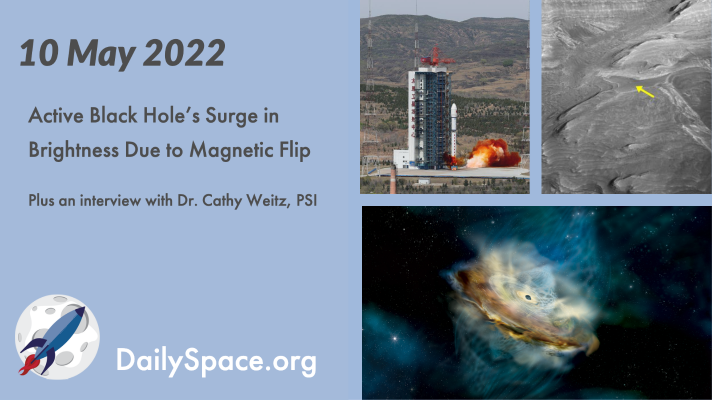
May 11, 2022 | Active Galaxies, Asteroids, Citizen Science, Daily Space, Galaxies, Guest Interview, Mars, Perseverance, Rockets, Space China, Spacecraft, SpaceX, Starlink, Supermassive Black Holes
A luminous black hole already classified as an active galactic nucleus brightened suddenly in recent ground and space observations, and the cause may be due to a sudden flip in the magnetic poles. Plus, community science, rockets, Ingenuity, and an interview with Dr. Cathy Weitz from Planetary Science Institute.
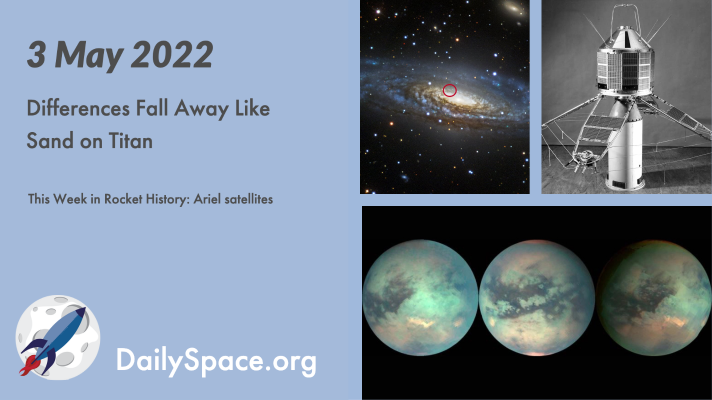
May 4, 2022 | Daily Space, Jupiter, Mars, Rocket Lab, Rockets, ROSCOSMOS, Space China, Space History, Spacecraft, SpaceX, Starlink, Supernovae, The Sun, Titan
Using spherical grains called ooids, found on Earth in shallow, tropical waters, scientists have found a possible mechanism for the formation of hydrocarbon sand on Titan. Plus, rocket launches, Jupiter and Mars, space explosions, and this week in rocket history, we look back at Britain’s Ariel satellite program.








 We record most shows live, on Twitch. Follow us today to get alerts when we go live.
We record most shows live, on Twitch. Follow us today to get alerts when we go live.